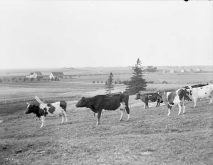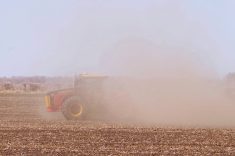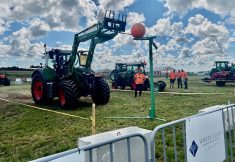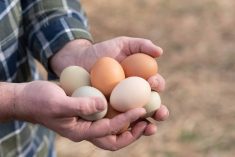In how it decided to pay out $252 million in support for farmers and processors, Ottawa is demonstrating it would prefer to lean on existing federal-provincial programming.
Federal Minister of Agriculture and Agri-Food Marie-Claude Bibeau has consistently pointed to existing tools in the tool box as ways to find pandemic relief for farmers, a message reinforced when funding was announced.
The government is delivering $125 million to farmers through AgriRecovery, a tool in federal-provincial business risk management (BRM) framework triggered by affected provinces.
Read Also

Tie vote derails canola tariff compensation resolution at MCGA
Manitoba Canola Growers Association members were split on whether to push Ottawa for compensation for losses due to Chinese tariffs.
Each year around $125 million is budgeted for AgriRecovery, but it is rarely used in full. Between 2014 and 2018, an average of $6,743,200 was paid directly to farmers through it.
The total amount will be spent this year, and it is expected more money will have to be put into AgriRecovery at a later date to accommodate the extraordinary expenses.
While critics are claiming the AgriRecovery funding isn’t “new” because it involves money that already existed in the budget, it’s disingenuous to ignore Ottawa’s commitment to spend the total $125 million.
Typically 70 per cent of the extraordinary costs associated with the natural disaster are eligible to be covered under AgriRecovery, but now the federal government is saying farmers will be covered for 90 per cent of eligible expenses.
That, of course, makes AgriRecovery as a whole more expensive for government. The federal government is committed to paying its 60 per cent share of that, regardless of whether the provinces come on side.
Provinces are responsible for paying 40 per cent of AgriRecovery costs, and at least one province, Saskatchewan, is concerned that will stretch already limited provincial finances.
Federal Minister of Agriculture and Agri-Food Marie-Claude Bibeau is pitching the move as giving provinces “flexibility,” but it is clear she wants provinces to pay more.
So far, she has failed to get all the provinces on board, prompting the federal government to act unilaterally.
By announcing it is willing to pay more, despite having all the provinces agreeing to do the same, the federal government is also applying pressure on the provinces. In Alberta, it worked: the province has announced it’s in.
But government sources admit Bibeau is continuing to face push-back from several provinces.
Bibeau admitted “all of the provinces are not at the same place” when it comes to funding AgriStability, a cost-shared program triggered when producers experience a large margin decline.
While five provinces have agreed to allow producers to apply for advance payments under the program of 75 per cent, farmers in the other five provinces will only be able to ask for the traditional 50 per cent prepayment.
Bibeau has also so far failed to convince provinces to include a lack of access to labour as an eligible claim under AgriInsurance, which is usually triggered when production losses are caused by “severe but uncontrollable hazards.”
Primarily aimed at provinces with a large horticulture industry, the federal government argues including labour shortages would insure producers against lost production should they be unable to employ enough workers for harvest.
So while the federal government would like to see more co-operation (and money) coming from the provinces, it is demonstrating a willingness to spend on existing programs, even in the absence of provincial support.















